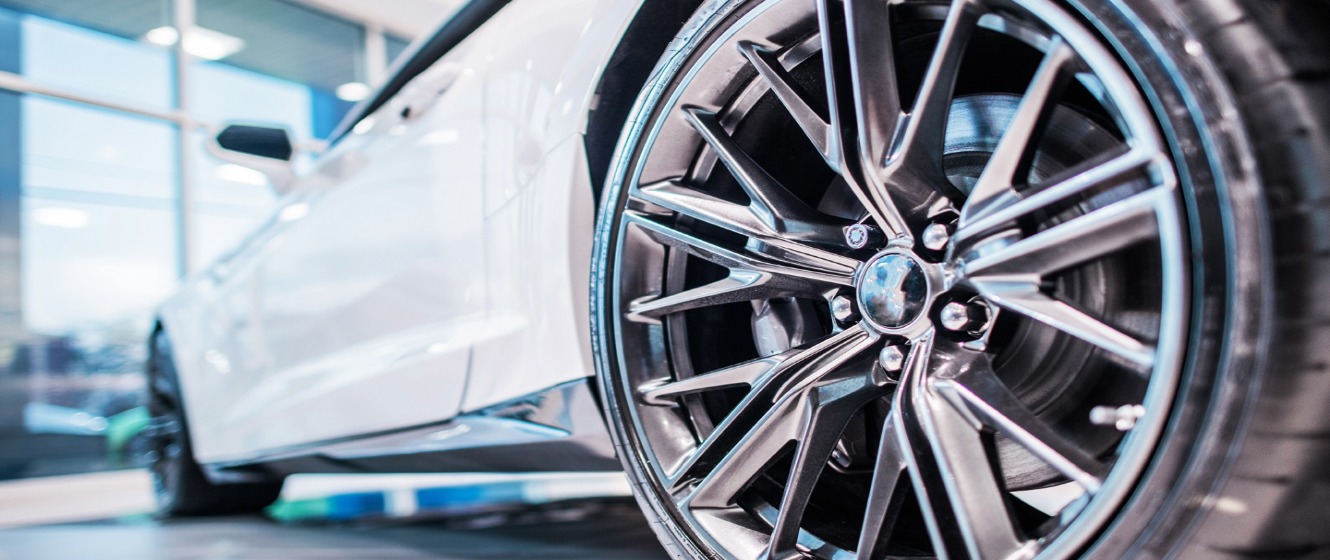Should You Lease or Buy Your Next Car?
Leasing may seem like a simple way to drive a new car for a lower monthly cost, but there’s more to it than paying a few hundred dollars a month and handing over the keys in a couple of years. In reality, leasing can come with unexpected costs and limitations. For many drivers, financing a vehicle with an auto loan from Anderson Brothers Bank may be the smarter long-term investment.
If you’re in the market for a car, there are many variables to consider, from make and model to new or used to buying versus leasing. Taking the time to understand all the pros and cons will help you find the solution that’s best for you. Let’s explore some common questions people have about leasing versus buying a car.
What Are the Advantages of Leasing?
Leasing has grown in popularity in recent years. In 2024, more than 20% of new vehicles were leased in the U.S. Many people choose to lease a car because this can make nicer vehicles more affordable, and any mechanical problems they encounter during the lease period likely will be covered by the manufacturer’s warranty.
Is Leasing Cheaper Than Buying?
Leasing can have a lower upfront cost. Some dealers only require a small security deposit and your first month’s payment to get started. However, others may require several thousand dollars down. It’s important to read the fine print and understand all the associated costs of leasing—including hidden fees, interest, and end-of-lease charges.
Are Monthly Payments Lower for Leased Cars?
In general, yes—monthly payments on leased vehicles are lower than loan payments for a purchase. That’s because you’re only paying for the vehicle’s depreciation during the lease term, not the full value of the car. However, at the end of the lease, you return the car and walk away with no ownership or equity.
What’s the Biggest Disadvantage of Leasing?
The most significant downside is that you don’t own the car. After years of making payments, you’ll have nothing to show for it. On the other hand, when you buy a car and pay off your auto loan, the vehicle is yours—and you can continue driving it for years without any monthly payments. This makes buying a better long-term value for many people.
Can You Negotiate the Price of a Leased Car?
Leasing terms are based on a vehicle’s value, so if you want a low lease price, you’ll need to haggle with a dealer. Beware of hidden dealer fees as well. These can be a factor when both buying and leasing a car. Be sure to ask about “acquisition fees” and “disposition fees” so you understand the full cost.
What Can Drive Up Leasing Costs?
Most agreements put strict limits on the miles driven per year, often 10,000 or 12,000 annually. If you go over the limit, you’ll be charged up to 25 cents a mile. You’ll also be charged at the end of your lease term for any dents, pet stains or other upholstery marks. The dealer will deduct repair costs from the security deposit you put down when you signed the lease.
Are Any Other Payments Owed at the End of a Lease?
Yes. When the lease ends, you may owe additional charges based on the vehicle’s residual value—the estimated value of the car after depreciation. Some leases require a balloon payment if you choose to buy the car at lease-end. Be sure to review these terms before signing.
Do Credit Scores Matter When Leasing?
Absolutely. Just like with a car loan, your credit score affects your ability to lease and the terms you’re offered. A lower credit score may result in higher fees—or you may not qualify for a lease at all. Some dealerships offer lease-to-own programs for those with limited credit history, but they often come with strict requirements and little room for error.
At Anderson Brothers Bank, we offer auto loan options for first-time buyers and individuals with credit challenges. Our local team can help you find a path to ownership that fits your budget.
Can You Buy the Car After the Lease Ends?
Yes. Most leases offer a buyout option at the end of the lease term. However, experts caution that this may not be the most cost-effective way to purchase a vehicle. In many cases, you could find a similar used vehicle for less than the buyout price.
How Can I Compare the Cost of Leasing vs. Buying?
According to industry experts like Edmunds, buying a used car and driving it for several years after it's paid off is typically the most cost-effective option. Here’s a simplified breakdown using Edmunds' 5-year cost estimates for a 2025 RAV4 (~$47k MSRP):
- Leased (3 years): $595/month → Total: $21,420
- New Purchased (5 years): $745/month → Total: $48,000
- Buying Used (3 years later): $550/month → Total: $30,000
Ultimately, the right choice depends on your financial goals. If you prefer lower monthly payments and plan to switch vehicles every few years, leasing may make sense. But if you’re looking to build long-term value and avoid recurring payments, buying is often the better move.
Still Deciding?
Despite what commercials may promise, leasing isn’t always the easiest or most cost-effective option. If you decide that buying is the better route, Anderson Brothers Bank is here to help you navigate the auto loan process with straightforward guidance and competitive rates.
Get pre-approved today or contact us to learn more about financing your next car in South Carolina, Georgia, or North Carolina.



